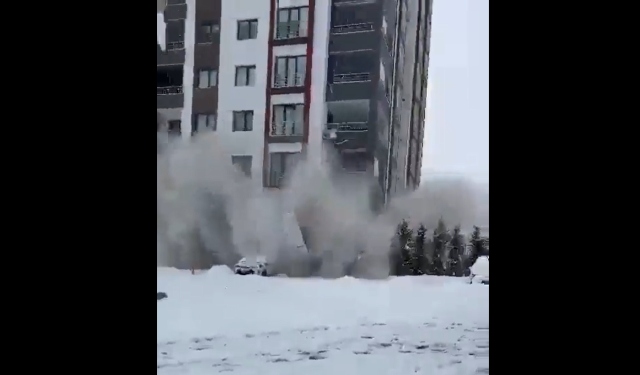
The sinkhole appeared in a lake in Lone Elk Park in St. Louis County. Parks director Tom Ott was told on May 7 that the lake suddenly dropped three feet, losing enough water over the weekend to reveal the SUV-wide sinkhole.
Ott surmised that the hole might have formed due in part to a small-magnitude earthquake on April 20. He added that the lake was always full in the early 1990s but hasn't held water in the same way in the past two decades. "We've had people look at it [but] but they couldn't tell where it was leaking," he said.
The county will get a hydraulic engineer to look at the sinkhole and send someone with a drone to take pictures. The park will also add signage along the shoreline that will warn people against entering the lake, which went nearly dry after losing a third of its water.
Ott shared that this wasn't the first time a sinkhole appeared at the manmade lake. In 2016, a sinkhole that was roughly four to five feet across opened up in the vicinity of the new one. Park authorities sent someone to inspect it and pour concrete slurry into the hole to patch it.
Meanwhile, all lanes on the Hernando Desoto Bridge in Memphis were closed on May 11 after a routine inspection found a crack in one of the bridge's support beams. The bridge, which connects Tennessee to Arkansas, has remained closed until further notice while the Tennessee Department of Transportation (TDOT) repairs the bridge.
The department said that there was no evidence that the bridge would continue to deteriorate. It added that it is working with experts to revisit past studies on the bridge that might have captured useful information relevant to the fracture.
Major earthquake feared along New Madrid
There is speculation that the two incidents hint that a major earthquake along the New Madrid Seismic Zone is coming. This zone is a network of deep-seated faults that spans Illinois, Arkansas, Missouri, Tennessee and Kentucky.
New Madrid's last major seismic event took place between 1811 to 1812. This means it is overdue for a "big one" earthquake since the fault line ruptures around every 200 years.
Such a high-magnitude event could be more devastating than a large earthquake along the San Andreas Fault. The latter traverses only California while the New Madrid extends 150 miles from southern Illinois through Missouri and down through Arkansas. The seismic zone then dips into Kentucky and Tennessee, spanning fives states and crossing the Mississippi River in at least three places.
A large earthquake could cause extensive damage in those states and reach places as far as Canada and Massachusetts. The crust beneath the eastern U.S. has very few active faults to interrupt the propagation of seismic waves, as the New Madrid itself is located in the middle of a continental plate. This meant that ground vibrations from New Madrid quakes could travel thousands of miles.
In fact, when a series of three major earthquakes hit along the New Madrid Seismic Zone between 1811 to 1812, aftershocks were felt all the way in Canada, Boston and Washington D.C. Each of the tremors measured greater than magnitude 7.0. According to accounts at the time, the ground rolled in visible waves, sank and bulged in places. Huge cracks swallowed things whole and new lakes formed while old ones were destroyed. (Related: Cascadia "Big One" will be more disastrous than the 2011 Japan earthquake, experts predict.)
But the earthquakes had a muted impact since the population in the affected regions was very sparse back then. But in the ensuing two centuries, the population of these regions has increased exponentially.
Learn more about earthquakes in America by reading the latest articles at Disaster.news.
Sources include:
Please contact us for more information.






















